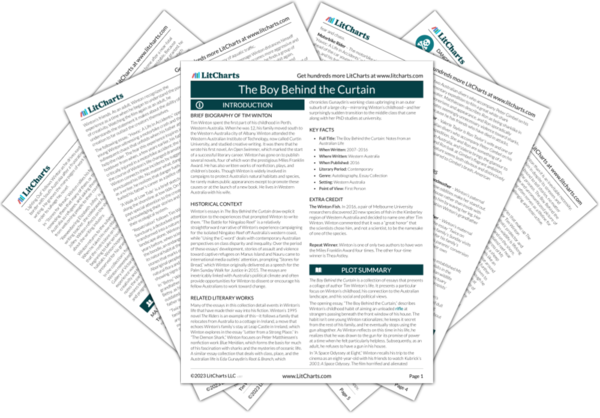AI ToolsNew
Tools to make learning and teaching easier
|
Previous
A Space Odyssey at Eight
|
The Boy Behind the Curtain: Havoc: A Life in Accidents Summary & Analysis |
Next
A Walk at Low Tide
|


Upgrade to unlock the analysis and theme tracking for all of The Boy Behind the CurtainThe Boy Behind the Curtain!
Get LitCharts A+